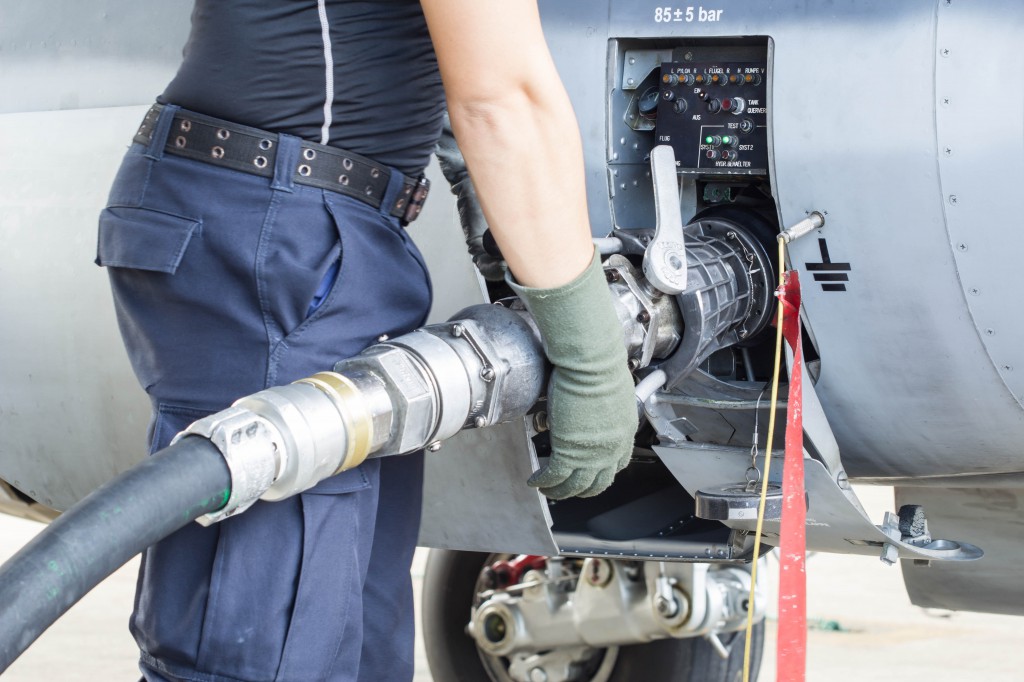By Jeana Cadby
Flying airplanes using fuel made from mustard seeds might seem like a far-fetched scenario, but Canadian researchers and farmers have already made it a reality. Locally produced biofuel, converted from sustainably grown mustard seeds, is an encouraging prospect for greening the airline industry, one flight at a time.

Greenhouse gas emissions from the transportation sector are expected to increase over the next few years, as frequency of air travel continues to rise. While these contributions of greenhouse gas are significant, they can be dramatically reduced with industry adoption and incorporation of biofuel. Researchers in Canada have partnered with NASA to produce studies demonstrating that powering airplanes with only a 50 percent blend of biofuel can reduce particle emissions on average 50-70 percent.
Biofuel is a form of renewable energy, produced from plant matter, such as plant waste or seeds. The most promising choice for fueling airplanes is an industrial mustard seed called carinata, or Brassica carinata. Farmers often grow this very productive oilseed crop during fallow periods of the cropping cycle as a cover crop or for animal feed. While there are many different compositions of biofuel, depending on the starting material and processing method, carinata seeds have great potential to supplement or replace jet engine fuel.
Quebec-based Agrisoma and Amsterdam-based SkyNRG are currently producing biofuel made from carinata to power airplanes, while also boasting overall greening effects as a result of production. Not only does carinata absorb CO2 during growth, but it also attracts and supports pollinators throughout the flowering stage of development. Little waste is generated as a result of production, as the protein extracted from the seeds is used to feed livestock, and the remaining oil refined into fuel.
Replacing aircraft fuels is no easy task, as logistical barriers such as engine and temperature compatibility, performance, and safety concerns are difficult to navigate. However, carinata seeds developed and grown in Canada show promise for the industry due to ease of processing, high oil yield and adaptability for growth in different environments.
Production is not limited to Canada, and carinata can also provide local sources of fuel for different growing regions, such as Uruguay, Brazil, and Argentina. Carinata is currently produced in areas not suitable for food production, upholding one of the goals of Agrisoma: to give back to the land and avoid displacing food production. Their partnerships with major airlines such as Quantas and Air Canada support further infiltration of biofuels into the industry.
Air Canada has long been an advocate for biofuel, setting the precedent for additional countries and airlines to adopt more economical and environmentally friendly practices. Their test flights using biofuel-powered airplanes have demonstrated the feasibility and economics of adopting biofuel for major airlines. Quantas, WestJet, United, and SpiceJet, among others have correspondingly been conducting flights powered by total or partial blends of biofuel.
Biofuel research coming out of Canada has produced other candidates for local fuel production, including camelina, a relative of mustard seed. This high oil-yielding crop has actually been grown in Canada for some time, and shows promise in the cosmetics and superfoods industries as well. While efficiency of biofuel production from camelina is still under investigation, Toronto-based Porter Airlines has successfully tested flights using a camelina biofuel mix, supplied by Honeywell UOP from the United States.
Growing biofuel could be the key to the much-needed greening of the aviation industry. Already dubbed as “green diesel”, locally grown biofuel can be blended with or outright replace conventional fuel used to fly airplanes. With the potential of Canadian technology developing high-yielding, environmentally friendly biofuel crops, there are sure to be plenty of options ready in time for takeoff.
[infobox title=’Jeana Cadby’]Jeana Cadby has spent most of her agriculture career as a conservation specialist with a bachelor’s and master’s degree in plant and soil sciences. Her company, Edible Sci, provides science communication focused content development writing services to businesses. Jeana is also is a freelance science writer and doctoral candidate studying sustainable agriculture.[/infobox]












